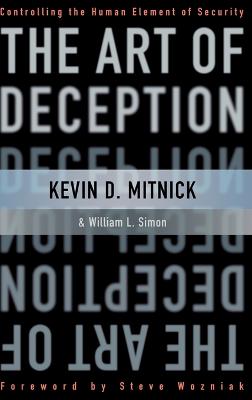Me crucé con este libro (está en la mula, por supuesto) y me lo he devorado en dos días. Hay una segunda parte, The Art of Intrusion, que parece que está incluso mejor.
Kevin Mitnick se hizo bastante famoso, para su desgracia, cuando le condenaron a unos cuantos años de cárcel por diversos delitos contra la seguridad electrónica de varias empresas y agencias estatales norteamericanas (nada grave según él, el holocausto informático según el fiscal). La Wikipedia (Kevin Mitnick, Kevin Mitnick ) cuenta su historia por encima. El caso es que él está convencido de que le tomaron como cabeza de turco, tanto los periodistas como el sistema judicial.
Este libro no es una biografía, sino un repaso a los métodos de lo que se ha dado en llamar “ingeniería social”, o el arte de sonsacar información importante a la gente que la tiene sin que estos se alarmen. El libro consiste en un montón de casos (supuestamente verídicos) en los que una persona ajena a cualquier empresa u organización acaba por obtener gran cantidad de información. Kevin Mitnick [KM] habla de detectives privados, de estudiantes de instituto con mucho tiempo libre e incluso de una nueva figura, en el borde de la legalidad, llamada “brokers de información”, especialistas todos ellos en encontrar información que supuestamente no debe ser divulgada al público.
Los casos son realmente entretenidos de leer. Muchas de las veces uno piensa “no, eso no me podría pasar a mí”, pero eso justo es lo que dice KM que piensa todo el mundo. Y sin embargo pasa constantemente, según él. En cada caso que relata termina instruyendo acerca de cómo algunas políticas de difusión de información dentro de la empresa, bien instauradas, podrían evitar la gran mayoría, si no todos, los escapes de información debidos a ataques mediante ingeniería social.
El último capítulo es algo más soso y se dedica íntegramente a resumir de manera estructurada todos los pasos que cualquier organización, ya sea privada o gubernamental, debería dar para establecer políticas claras e inatacables que minimicen el flujo de información importante al exterior.
El libro es muy entretenido y se lee rápidamente. Deja (al menos a mí) con muchas ganas de seguir leyendo sobre el tema, por lo que rápidamente “localicé” el siguiente libro del mismo autor, que ya ando devorando. Mi nota: Muy interesante.
